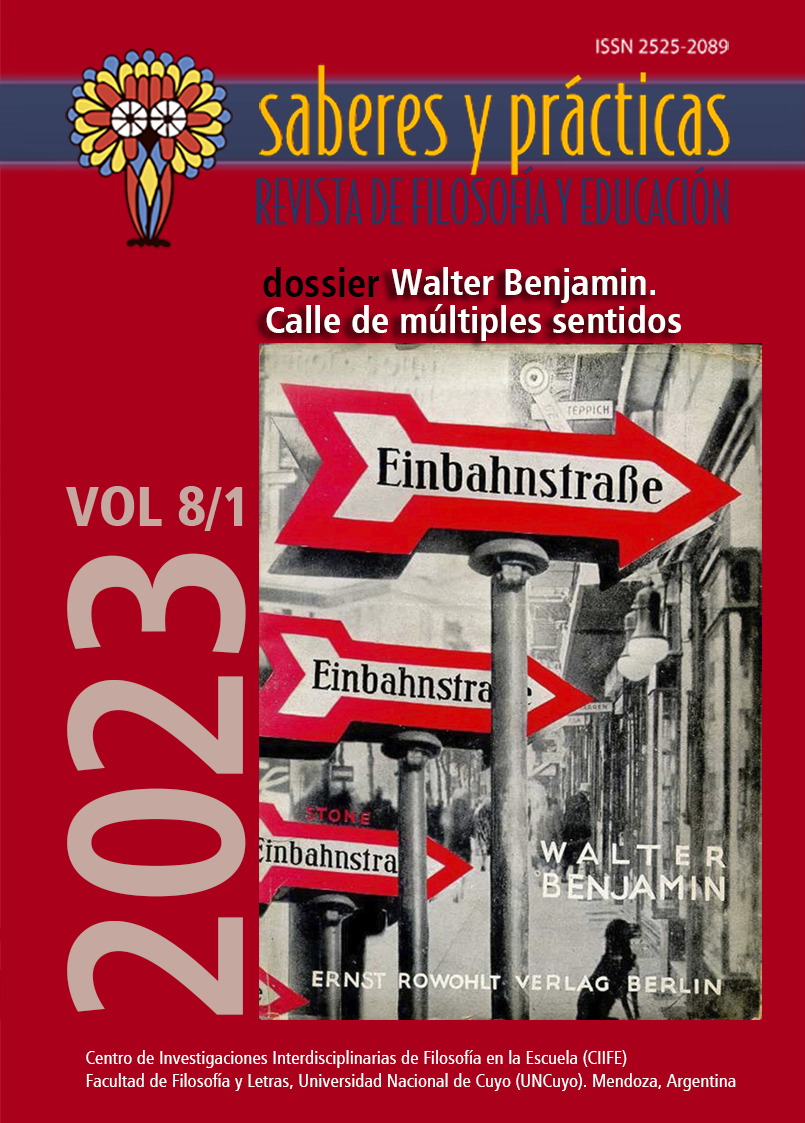La dimensión política de la verdad a través del filosofar de Esther Díaz
DOI:
https://doi.org/10.48162/rev.36.085Keywords:
thought, science, subject, domination, resistanceAbstract
Thought is related to a way of being. The way of thinking that privileges science ignores
the context, it seems that this is irrelevant, since it is believed that thought is far from natural and
historical reality. However, how one thinks affects the relationship that subjects maintain with
things, objects, situations and also with each other. Modern reason, as scientific and dominant, has
not only allowed technical development, it also objectifies what is different from itself, that is the
point from which Esther Díaz philosophizes, said philosophizing is recovered and interpreted in this
document.
The criticism of science as dominant and unequivocal does not invalidate the knowledge given from
it, it does not advocate a closure of reason, but trusts it, as long as it is capable of opening up to
different perspectives. The opening would have repercussions at the political level, in the sense that
the subjects would be cured of the delirium of domination. Esther's philosophizing invites us to be
free, to face life with clarity and passion.
Downloads
References
Alvarado, M. (2008). Hacia una pedagogía del silencio y el goce. Perspectivas metodológicas, 8 (8), 91-97. https://doi.org/10.18294/pm.2008.500
Díaz, E. (1993). Michel Foucault. Los modos de subjetivación. Almagesto
Díaz, E. (1999). Posmodernidad. Biblos
Díaz, E y Heller, M. (2000). El conocimiento científico. Hacia una visión crítica de la ciencia. (vol.2). Eudeba.
Díaz, E y Heller, M. (2001). El conocimiento científico. Hacia una visión crítica de la ciencia. (vol. 1). Eudeba
Díaz, E. (2007). Entre la tecnociencia y el deseo. La construcción de una epistemología ampliada. Biblos
Díaz, E. (2010a). La filosofía de Michel Foucault. Biblos.
Díaz, E. (2010b). Las grietas del control. Vida, vigilancia y caos. Biblos.
Díaz, E. (2019). Filósofa Punk. Una memoria. Ariel.
Gabriele, A. (2020). Esther Díaz. Problemas filosóficos. Saberes y prácticas. Revista de filosofía y educación, 5 (1), 1-3.
Gordokin, I. (2006). La formación docente y su relación con la epistemología. Revista Iberoamericana de educación, 37 (5), 1-9 https://doi.org/10.35362/rie3752691
Martinelli, L. (2019). Entrevista a Esther Díaz. Revista de estudios y políticas de género, 1(2), 147-155
Published
How to Cite
Issue
Section
License
Copyright (c) 2023 Eduardo Solano Vázquez
This work is licensed under a Creative Commons Attribution-NonCommercial-ShareAlike 2.5 Argentina License.





















